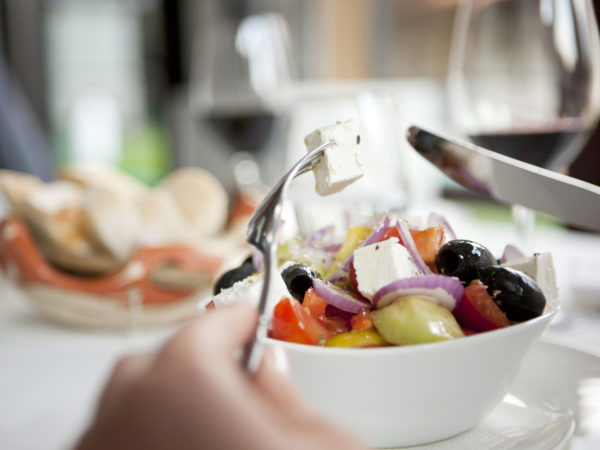Mastering The Mediterranean Diet?
I’ve tried all kinds of diets and can’t seem to stay on them. What diet do you recommend as the easiest to maintain over the long term?
Andrew Weil, M.D. | October 1, 2004

The following was originally published 08/14/2003.
I’m in favor of the Mediterranean diet for several reasons: most people like it; it doesn’t stint on flavor; and it offers a wide range of health benefits. I am particularly impressed with the results of a recent study from the University of Athens, which was published in the June 26, 2003 issue of The New England Journal of Medicine. Researchers reported that people who ate a Mediterranean-style diet had a 33 percent reduction in the risk of death from heart disease, and a cancer death rate that was 24 percent lower than the death rate for those who ate other foods.
The Mediterranean diet is a composite of the traditional cuisines of Spain, southern France, Italy, Greece, Crete and parts of the Middle East. High-quality fresh fruits and vegetables, nuts, legumes, unrefined cereals, olive oil, cheese and yogurt are eaten most days, as is fish. The diet only includes rare (monthly) servings of meat and infrequent (weekly) servings of poultry, eggs and sweets. Wine is drunk in moderation. Remember that the traditional Mediterranean diet is part of a whole cultural package, which includes regular physical activity (more than most Americans get) as well as strong social and family bonds, which are often enjoyed around shared meals. (I should point out that this diet is changing as processed food and American fast food appear in these areas of the world.)
I also like the traditional Japanese diet, which consists of regular servings of fish and soy foods, rice, fresh fruits and vegetables, fermented foods like miso and tempeh and very little meat. However, it is very high in salt, and uses many uncommon ingredients that may be unacceptable to Western tastes. Preparation of Japanese dishes also tends to be labor intensive. Sadly, the traditional Japanese diet is disappearing, as western ways of eating become more popular all over Asia. Not surprisingly, as Japanese adopt our ways of living, they also increase their risks of our ways of dying, especially from cardiovascular disease.
Andrew Weil, M.D.












